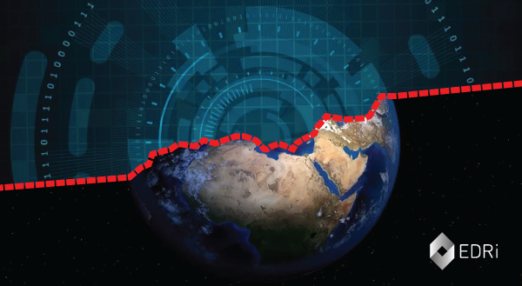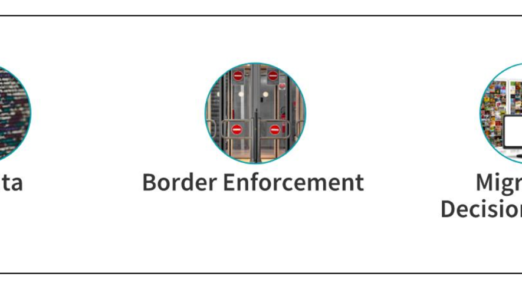refugees
Filter by...
-

Challenging the use of GPS tags to monitor asylum seekers in the UK
The latest rollout of GPS tags to monitor migrants is another step in creating a 'hostile environment' for asylum seekers in the UK.
Read more
-

Regulating Migration Tech: How the EU’s AI Act can better protect people on the move
As the European Union amends the Artificial Intelligence Act (AI Act) exploring the impact of AI systems on marginalised communities is vital. AI systems are increasingly developed, tested and deployed to judge and control migrants and people on the move in harmful ways. How can the AI Act prevent this?
Read more
-

Eurodac database repurposed to surveil migrants
Eurodac is the EU database used to store asylum seekers’ and refugees’ data, as well as certain categories of “irregular” migrants. By the end of 2019, the EU stored almost 6 million peoples’ fingerprint sets in the database. Research show how legislative developments transform the Eurodac database into “a powerful tool for mass surveillance”, endangering migrants' fundamental human rights.
Read more
-

Immigration, iris-scanning and iBorderCTRL
Technologies like automated decision-making, biometrics, and unpiloted drones are increasingly controlling migration and affecting millions of people on the move. This second blog post in our series on AI and migration highlights some of these uses, to show the very real impacts on people’s lives, exacerbated by a lack of meaningful governance and oversight mechanisms […]
Read more
-

The human rights impacts of migration control technologies
This is the first blogpost of a series on our new project which brings to the forefront the lived experiences of people on the move as they are impacted by technologies of migration control. The project, led by our Mozilla Fellow Petra Molnar, highlights the need to regulate the opaque technological experimentation documented in and […]
Read more
-

Mozilla Fellow Petra Molnar joins us to work on AI & discrimination
Starting on 1 October, Petra Molnar will join our team as a Mozilla Fellow. She is a lawyer specialising in migration, human rights, and technology, and has a Masters of Social Anthropology from York University, a Juris Doctorate from the University of Toronto, and an LL.M in International Law from the University of Cambridge. Mozilla […]
Read more
-

ENDitorial: “Hate speech”: Who’s the German for hypocrisy
German interior minister Thomas De Maizière has a simple solution for “hate speech”. He believes that other people should stop it. He believes that someone (else) should do something. In particular, he is very keen that American internet companies should become much more involved in policing, suppressing and punishing what they consider to be “hate […]
Read more
-

CCC campaigns to provide Internet access to refugees in Germany
German EDRi member Chaos Computer Club (CCC), along with free network associations Freifunk Berlin and the Förderverein freie Netzwerke, is running a fundraising campaign in support of the non-profit organisation Refugees Emancipation (RE). The project, initiated by asylum-seekers, aims to prevent the isolation and enhance the connectivity of refugees in Germany by enabling their access […]
Read more
-

ENDitorial: Racism in Germany – Facebook should do “more”
Xenophobic attacks against refugees in Germany have dramatically increased over the past two years. In the first six months of 2015, German authorities counted 150 attacks on asylum-seeker shelters throughout the country. On 27 August, in an attempt to address the situation, Germany’s minister of justice and consumer protection urged Facebook to take down racist […]
Read more
